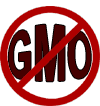Safety Checks on GMOs Flawed: EU Environment Chief
By Jeremy Smith
April 5, 2006
VIENNA (Reuters) - Europe's environment chief attacked the EU's top food safety agency on Wednesday for flawed risk assessments of genetically modified (GMO) crops and foods, saying it relied too much on data given by the biotech industry.
In a strong hint he was unwilling to process new requests for approval of GMOs for growing until their potential long-term impact was known, EU Environment Commissioner Stavros Dimas also warned against using such data as a sole information source.
His comments on EFSA, Europe's Parma-based food safety agency, which conducts scientific risk assessments of GMO products awaiting EU approval, echoed similar criticisms made last month by the bloc's environment ministers.
"There are questions like whether scientific opinions rendered by EFSA have relied exclusively on information provided by companies that look at short-term effects," he said.
"EFSA cannot give a sound scientific opinion on long-term effects of GMOs. There are also questions on whether GMO companies are providing the right information to the European Commission," he told a news conference.
EFSA's opinions are required by law if any country objects to a company's application to authorize a new GMO product on EU territory. The agency, set up in 2002, conducts its assessments based on data given by the biotech companies that make the GMOs.
At their last meeting in March, several of the EU's 25 environment ministers accused EFSA of failing to take independent and national studies into account for its GMO risk assessments and of not allowing proper access to its research.
This is not the first time EFSA, set up in 2002, has drawn fire on its GMO reports, mainly by green groups that say the agency shows repeated bias in favor of the biotech industry.
This view is disputed by industry, which says EFSA's independent work is undermined by a small number of countries that oppose GMO crops on political and not scientific grounds. EFSA says it is not influenced by commercial or other interests.
New Approvals 'On Hold'?
Later, in a speech delivered to a two-day conference on GMO crop separation, Dimas gave a clear indication that longer-term studies on the potential impact of GMOs were needed before the EU could consider new applications for approval.
Three such applications are now sitting in his department of the European Commission, the EU's executive arm, back in Brussels -- two modified maize types and one GMO potato variety.
"Applications for cultivation of GMO products raise a whole new series of possible risks to the environment, notably potential longer-term effects that could impact on biodiversity," he told conference delegates.
"No new GM varieties have as yet been approved under the new regulatory framework. And it is essential that we address such potential risks before granting approvals for their cultivation," he said.
Dimas was referring to the 2001 Deliberate Release directive, the EU's main GMO law that is used for approvals of any GMO destined for growing in Europe's fields.
While the EU has authorized a few GMO crops for cultivation -- the only one that is grown commercially is maize, mainly in Spain -- these approvals were granted before 1998, when the EU began a six-year unofficial ban on all new GMO authorizations.

